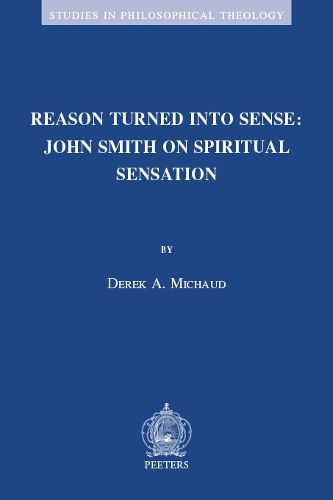Readings Newsletter
Become a Readings Member to make your shopping experience even easier.
Sign in or sign up for free!
You’re not far away from qualifying for FREE standard shipping within Australia
You’ve qualified for FREE standard shipping within Australia
The cart is loading…






John Smith (1618-1652), long known for the elegance of his prose and the
breadth of his erudition, has been underappreciated as a philosophical
theologian. This book redresses this by showing how the spiritual senses
became an essential tool for responding to early modern developments in
philosophy, science, and religion for Smith. Through a close reading of
the Select Discourses (1660) it is shown how Smith’s theories of
theological knowledge, method, and prophecy as well as his prescriptive
account of Christian piety rely on his spiritual aesthetics. Smith
offers a coherent system with intellectual intuition informing natural
theology and revelation supplemented by spiritual perception via the
imagination too. The central uniting feature of Smith’s philosophical
theology is thus “spiritual sensation’ broadly construed. The book
closes with proposals for research on Smith’s influence on the accounts
of the spiritual senses developed by significant later figures including
Jonathan Edwards (1703-1758) and John Wesley (1703-1791).
$9.00 standard shipping within Australia
FREE standard shipping within Australia for orders over $100.00
Express & International shipping calculated at checkout
John Smith (1618-1652), long known for the elegance of his prose and the
breadth of his erudition, has been underappreciated as a philosophical
theologian. This book redresses this by showing how the spiritual senses
became an essential tool for responding to early modern developments in
philosophy, science, and religion for Smith. Through a close reading of
the Select Discourses (1660) it is shown how Smith’s theories of
theological knowledge, method, and prophecy as well as his prescriptive
account of Christian piety rely on his spiritual aesthetics. Smith
offers a coherent system with intellectual intuition informing natural
theology and revelation supplemented by spiritual perception via the
imagination too. The central uniting feature of Smith’s philosophical
theology is thus “spiritual sensation’ broadly construed. The book
closes with proposals for research on Smith’s influence on the accounts
of the spiritual senses developed by significant later figures including
Jonathan Edwards (1703-1758) and John Wesley (1703-1791).